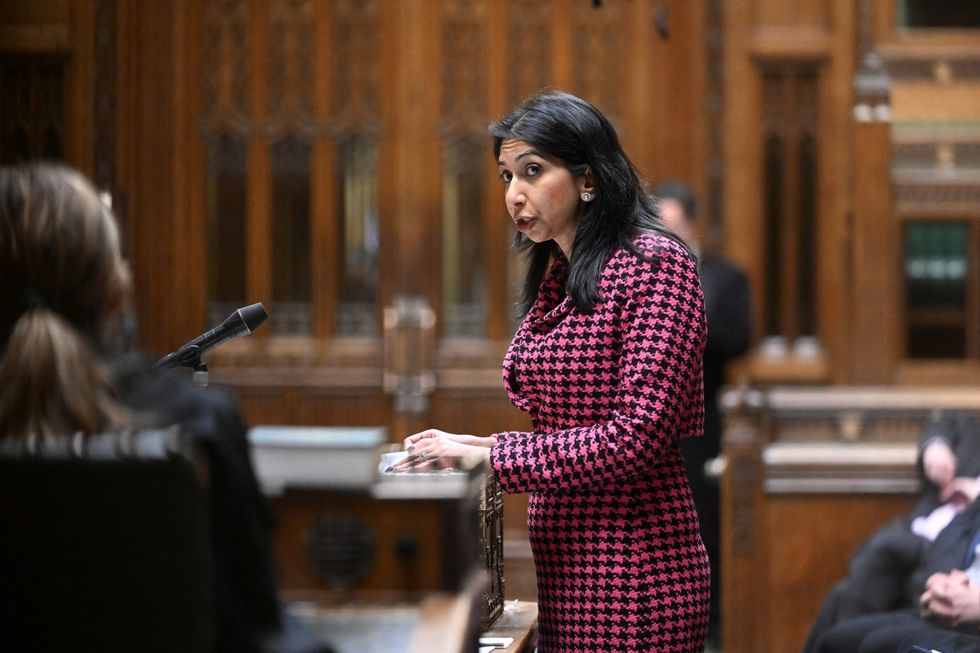“I WAS clear when Wendy Williams published her Windrush Lessons Learned review that I would listen and act. I will be accepting the recommendations she has made in full”.
That was what home secretary Priti Patel told the Commons three years ago. But last week, her successor, Suella Braverman, withdrew that commitment, as she confirmed the government will ditch several of those commitments to act on the lessons of the scandal.
The government had promised to hold formal reconciliation events with the Windrush generation. Those will not now happen.
The commitment to appoint a migrants commissioner and to review the powers of the Independent Commission for Immigration and Borders (ICIBI) are also cancelled.
Criticism was not confined to opposition parties. Kevin Foster, the Conservative MP for Torbay, who was a Home Office immigration minister from 2019 to 2022, went public with his disappointment about the promises which would not now be kept.

“The Windrush scandal was a stain on this country. Committing to implement all of Wendy William’s recommendations was a key part of rebuilding confidence with the communities affected,” he wrote.
Williams’ review combined insight into the causes of the scandal with a constructive agenda for change. It found that the life-wrecking mistreatment of those whose rights were not recognised by the state was no mere bureaucratic muddle, but a “profound institutional failure” rooted in the Home Office’s “institutional ignorance and thoughtlessness on issues of race”.
Warning signs had been ignored. An action plan for institutional reform had to be underpinned by a profound shift in the departmental culture.
Inquiry reports too often sit on the shelf. The most promising sign that the Home Office took this one seriously was inviting its author back to the department to review progress.
Williams’ spring 2022 update reported a mixed picture. Mandarins and ministers welcomed the acknowledgment of significant efforts to implement the change plan – but her central theme was a growing gap between an internal perception of significant change and much more scepticism from external stakeholders, especially those directly affected.
External scrutiny was crucial to improve the “accountability, effectiveness and legitimacy” of the department and – above all – to rebuild broken trust, she argued. But it was no coincidence that the recommendations strengthening external scrutiny were the most likely to remain unmet. This was an important indicator that the Home Office was “not yet confident enough” to welcome the type of scrutiny envisaged, said Williams.
Braverman’s reasons for rejecting the recommendations rather confirm that analysis. “External bodies are not the only source of scrutiny,” she argued, suggesting that the department can “shift culture and subject ourselves to scrutiny,” instead.

The government wants to declare the Windrush lessons learned and move on. Politically, key lessons of the scandal – the need to “see the face behind the case” and to pay heed to unintended consequences of “hostile environment” measures for those with legal status – complicate the government’s hardening line on immigration.
The government is pursuing a tougher approach to immigration even while public attitudes soften. Yet, there is some political logic to this, if the Conservatives are primarily focused on shoring up a core vote among the toughest third of the electorate. There is a striking partisan gulf in the priority given to immigration, in the latest Ipsos-Mori “issues index”.
Immigration – fourth overall – ranks third for Conservative supporters (29 per cent), yet is only the 14th priority of Labour voters (five per cent).
Whether Labour will offer continuity or change on immigration is not a simple question. The public do not see immigration as a single one-size-fits-all issue.

Labour accepts the post-Brexit points system, which reflects a broad political and public consensus on who gets a visa to work and study in the UK. Asylum is more polarising. Labour would scrap the Rwanda plan, which it calls an expensive and unworkable gimmick, but it needs its own plan for how the asylum system can combine control and compassion. The Windrush U-turn offers an opportunity to the opposition to differentiate with confidence, by committing to implement
the recommendations in full.
The government cannot bring ‘closure’ to the scandal without the reconciliation events which were promised. The further delay is regrettable, given the age of those directly affected. The next government could engage faith leaders and others in how to give these events status and meaning as an early post-election priority.
The U-turn last week was called a ‘slap in the face’ for the Windrush generation, particularly in this year of the 75th anniversary of the Windrush’s arrival in the UK.
But it is not the end of the story. Implementing the forward-looking proposals for a migrants commissioner and more independent ICIBI could form part of a broader agenda for transparency and accountability.
The next home secretary should invite Williams back to the department once again – to show that the post-Windrush agenda for cultural change can be put back on track.



















 His Highness Prince Rahim Aga Khan V
His Highness Prince Rahim Aga Khan V


‘Windrush lessons will go unlearned for now’
Anger and disappointment as Home Secretary drops report reforms